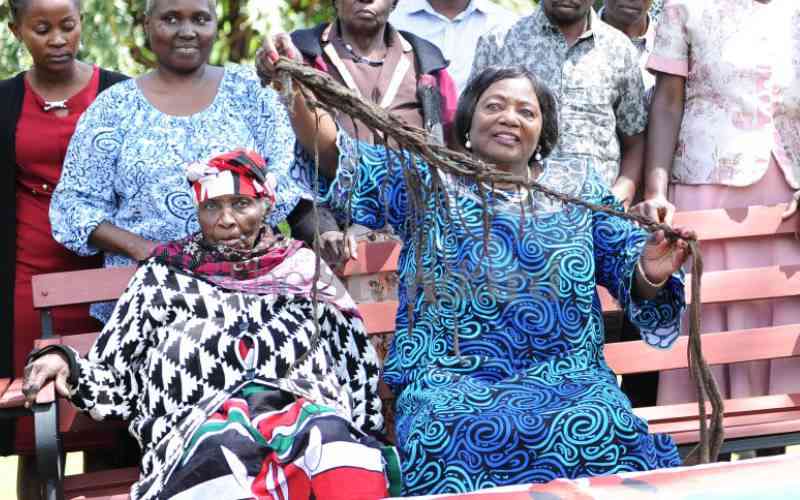×
The Standard e-Paper
Fearless, Trusted News

One of Kenya's prominent female figures in the liberation struggle, Field Marshal Muthoni Kirima, has passed away. Museum records show that Muthoni was born in 1930 as Muthoni Whihuini in Nairutia village, Nyeri County.
Former Nyeri Museum Curator Anthony Maina, who is currently in charge of the Murang'a museum, said she was named after her grandfather, foreshadowing her future as a woman breaking barriers in a male-dominated world.